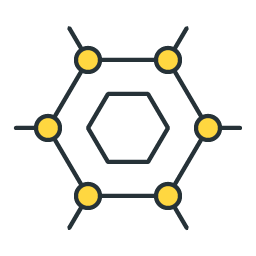Discourse and Research from TechLaw
Quantum Networking Technologies

Focus Areas: Quantum Networking Technologies
Scientists around the world are quickly learning to leverage the power of quantum physics to supercharge digital technologies. Quantum Computing is the most well-known application, and its development can potentially enable many benefits (i.e. pattern recognition and simulations) as well as risks (i.e. breaking public encryption). But researchers are also making fast progress in the development of Quantum Networking. Quantum networks take advantage of the mysterious-but-predictable properties of superposition and entanglement by sending particles prepared as “qubits” in a quantum-entangled state through a specialized communications architecture. These quantum networks, and the quantum Internet that they will eventually form, are likely to bring another sea change to how we communicate and how our devices work. They will enable quantum-based data encryption, they will facilitate networks of quantum sensors and computers that can manage autonomous vehicles and power grids, and they will create the infrastructure for blind quantum computing and a robust Internet of Things.
The University of Arizona is the home institution (with core partners MIT, Harvard, and Yale) for a large NSF-funded initiative called the Center for Quantum Networks that will lay the technical and social foundations for a quantum Internet. The TechLaw program is working with Yale’s Information Society Project to manage the law, economics, and policy research related to emerging quantum networking applications so that policymakers and society at large can be better prepared to reduce the risks and equitably spread the benefits of the new technologies.


